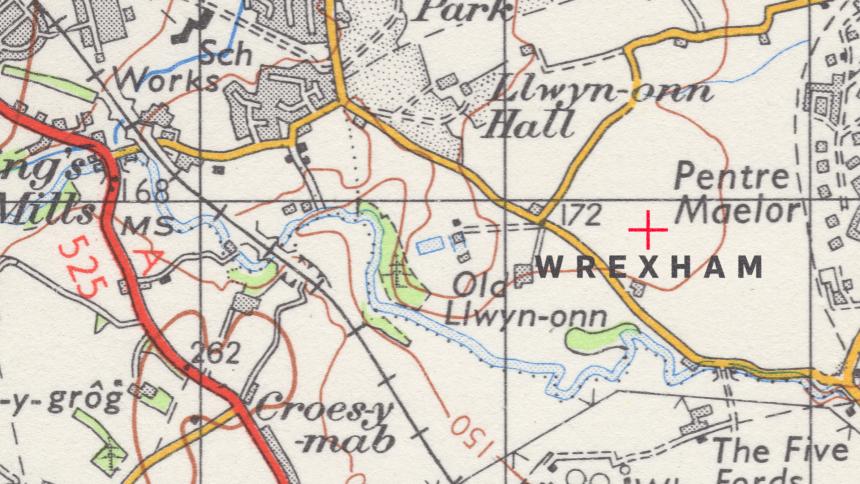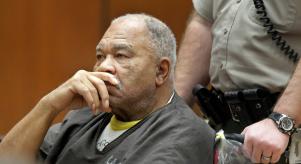
Wrexham: crime profile
Murdertown is back for a new series, delving into the details behind some of the darkest crimes committed across the UK. Each episode sees Katherine Kelly – star of Happy Valley, Liar and Cheat – visit a different town or city, and draws on testimonies from police officers, reporters and the ordinary people who have been devastated by murder.
In Wrexham, the largest town in North Wales, Katherine Kelly confronts the case of Jordan Davidson, a known criminal and user of crack cocaine and heroin who was out on license in Wrexham when he embarked on a terrifying crime spree in 2017. What happened next would almost defy belief, as Davidson’s lethal mania was turned on civilians and even the police officers who were determined to catch him.
The same year Davidson went berserk, Wrexham hit the headlines when photos depicting the town’s drug problem were spread on social media. Taken by a local bus driver, the photos showed people wandering around in zombie-like states in broad daylight, hooked on synthetic drugs once known as ‘legal highs’. It helped raise the alarm on a growing epidemic in the region.
However, while there certainly has been drug-related violence in Wrexham (including a grisly incident in 2014 when a dispute over drugs money led to one man being murdered with a crossbow), and while deprivation is a problem in this part of North Wales (Wynnstay, a ward in Wrexham, was revealed to have more than half its children living in poverty according to a recent report), the most shocking crimes connected to Wrexham and North Wales have had nothing to do with social issues. Instead, they were brought about by the inner demons and warped sexual cravings of dangerous men.
In May 2013, the body of a 17-year-old girl was discovered in woodland on the outskirts of Wrexham. She was Georgia Williams, the daughter of a police detective, who had gone missing after visiting a male friend called Jamie Reynolds in Telford, Shropshire.
At this point, Reynolds – an apparently ordinary, rather sweet-faced 22-year-old – was already in custody on suspicion of her killing. The case facing police officers would be one of the most harrowing in living memory. This had not been some crime of passion, or domestic abuse that escalated to murder. In fact, far from being in a relationship, Georgia had pointedly spurned Jamie’s advances, and he’d written self-pitying messages on social media about how ‘whenever I arrange dates they either never happen or the girl magically gains a boyfriend’.
The murder had actually been motivated by Reynolds’ obsession with sexual violence. Fixated on thoughts of hanging and strangulation, he compiled thousands of extreme porn images and videos, altered Facebook photos of girls he knew to fit with his savage fantasies, and lured Georgia to his house by claiming he wanted to take an artistic photoshoot featuring a simulated hanging.
After taking snaps of her smiling for the camera, he murdered her in a plan so meticulously prepared he even wrote a story about it beforehand, called ‘Georgia Williams in Surprise’. It’s little wonder that Georgia’s father later said that the family had been ‘damned by evil to endure this sorrow and misery to the end of our natural lives’. Reynolds himself will never walk the streets again, being one of the youngest people ever to receive a whole-life prison sentence.
Jamie Reynolds was stopped before he could kill again. The same, unfortunately, was not true of Peter Moore. Born in Kinmel Bay, around 35 miles from Wrexham, Moore was a businessman in his mid-50s who abruptly became a serial killer in 1995, slaughtering four men to satisfy his sudden whims. Once regarded as an upstanding member of the community, running a number of old-fashioned cinemas in North Wales and notable only for his penchant for wearing black clothes, Moore was an openly gay man who found two of his victims at a coastal cruising spot and a gay bar, respectively. His other two victims were just random men he targeted because he could. One of them, taken by surprise in his caravan by a knife-wielding Moore, asked him why he was stabbing him. ‘I just said “Fun!”', Moore later recalled. ‘He looked nonplussed. He carried on screaming.’
Due to the social stigma around gay life in mid-90s North Wales, it took a concerted effort by police to get local gay men to come forward with leads. One man eventually approached detectives, saying that a certain Peter Moore had tortured him during a sexual rendezvous, leading the police to the killer’s door. ‘I shall have to report to the Secretary of State, advising him of my view as to the earliest date that you should be considered for release,’ the judge told Moore in court. ‘I don’t want you or anybody else to be in the slightest doubt as to what I shall say. In a word: Never.’
In 1995, just months before Peter Moore began his sudden spree, another killer struck in North Wales. This scene of the crime was Llandudno, around 50 miles from Wrexham, and the victim was – heartbreakingly – a seven-year-old girl named Sophie Hook who was snatched while camping in her uncle’s garden one night.
The man eventually convicted of her abduction, rape and murder was a well-known, ominous presence in the area. Almost seven feet tall and with a track record of assault, burglary and threatening behaviour, Howard Hughes was described by one local as ‘the type of person you would nod to and say hello because he might get aggressive if you didn't.’
Despite a wealthy upbringing, Hughes developed behavioural and learning problems and was known for his dishevelled appearance – during his trial he spoke of how his teeth had rotted away because he couldn’t be bothered to brush them. But he was far more than just a petty criminal and eerie eccentric. His monstrous nature led to a killing so savage that little Sophie Hook had injuries akin to a car crash victim. Described by a judge as ‘every parent’s worst nightmare come to pass’, Hughes will likely remain caged until he himself dies.
WatchMurdertown: Wrexham, Monday 23rd September, 9pm.







